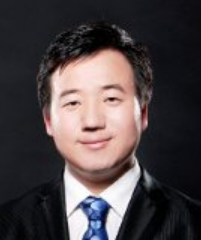G. Bin Zhao

G. Bin Zhao is a co-founder of Gateway International Group and executive editor at China’s Economy & Policy and his firm provide world class research and consulting on China to the leading financial and multinational companies around the globe. He is a research fellow at one of the most prestigious think tanks in Asia, and his colleagues include some of highly respected economists and experts with solid government connections as well as strong economic and industry backgrounds. This enables the group to generate valuable insider’s insights.
Additionally, Bin is a columnist at Forbes China and a frequent contributor for South China Morning Post and Xinhua News Agency, the state press agency with the highest authority in the country. His articles have also appeared in leading international newspapers such as the Wall Street Journal and Financial Times. His opinions have often cited by Google Finance and Yahoo Finance, and numerous Chinese internet portals and media.
Some of his researches have attracted significant attention from China’s top leaders in the past and a few articles have been circulated by the government’s internal reference system.
Previously, he was also an investment practitioner working as vice president for an U.S. based private equity firm in Shanghai co-manager of $1.35 billion fund in 2008.
G. Bin Zhao is a Chinese native and received most of his higher education in Europe and North America’s top business schools, include the Kellogg School of Management at Northwestern University, the Schulich School of Business at York University and Gothenburg School of Economics and Commercial Law.
According to a study conducted by the World Bank, Chinese purchasing power will soon overtake that of the US, making it the world's largest economy, and it has been reported that this event will occur ten years earlier than many expected. My view is that despite the fact that an elephant is huge, it is most often the lion or tiger that has the final say in the wild. The success of enterprises like Huawei and, Alibaba can be likened to the concept of genetic variation - only - when there are a wide variety of successful companies can China's voice be compared to the true roar of the dragon.
- China's economy faces a rough ride in the next few years as the new leadership introduces major changes (2012)
- China’s economy is at a difficult point, but the country is still in much better shape than the US and Europe, and will not crash (2013)
- China's crackdown on corruption will be a long, hard battle, but it must be fought openly and with integrity in order to avoid social and political turmoil and damage to the economy (2013)
- The main theme of the Third Plenary Session will probably be the "adjustment and regulation" of policies (2013)
- Direct conversion between the yuan and euro is on the way, direct exchange with major Western currencies is a necessary component of this process and there is no doubt that the euro will be another important option (2014)
- The Chinese government will adopt a quiet approach to deflating the dangerous real estate bubble given the huge impact a crash could have on the economy (2014)
- In October 2012, I predicted that Diaoyu's fallout sees China refocus RMB push to both Australia and Canada. A few months later the Australian dollar started to trade directly with renminbi, but not the Canadian dollar
- In January 2013, I said if Xi Jinping truly wants bold reforms, he must allow private enterprises to drive China's economic growth; however, reform of state-owned enterprises has been slow since then and SOEs enjoy a much more favorable atmosphere
As a strategist, economist, consultant, and thought leader, I must learn to overcome my own limitations as a result of past experience, education, cultural upbringing and heritage, personal philosophy and values, internal beliefs, etc. “All wrong-doing arises because of mind. If mind is transformed can wrong-doing remain?”, as a Buddha said.
Beyond the Pessimism: Why Sustained, Healthy Development Will be the New Normal for China’s Economy
This article originally published in South China Morning Post.
View postUkraine Crisis a Reminder to West that Biggest Threat is from Russia, not China
Source: South China Morning Post
View post
